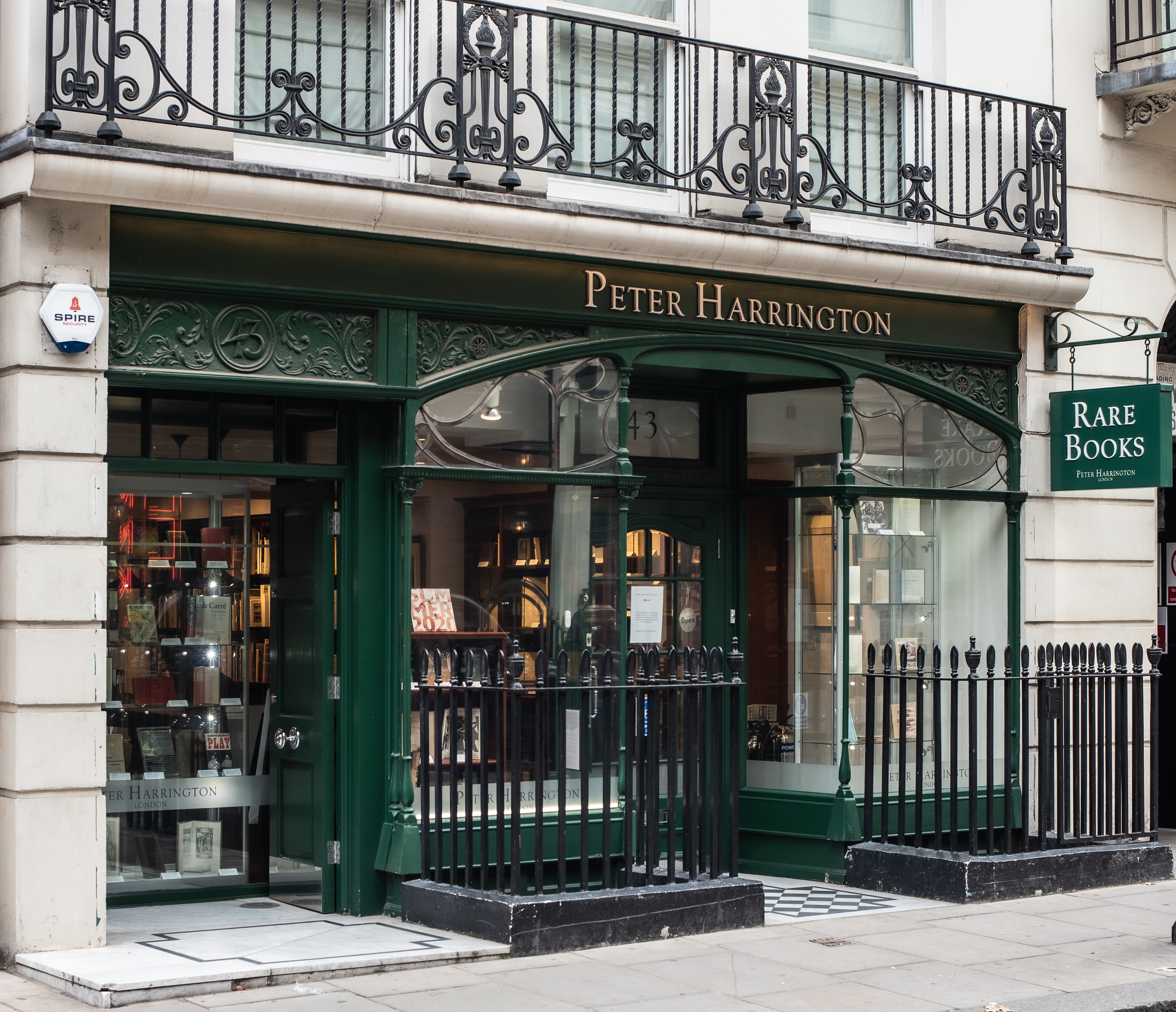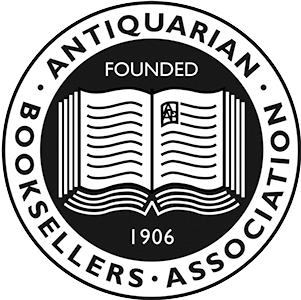[Alexandria: , 1916-53]. Politics, power, and position under empire A valuable record of the intersection between empire, pageantry, and education at one of British Egypt's elite private schools, signed by some of the most influential actors in the Middle East during the first half of the 20th century, including successive British High Commissioners (McMahon, Wingate, and Allenby), as well as royalty, military officers, politicians, and leaders from the worlds of commerce and media. Victoria College was founded in 1902, its early supporters including Sir Evelyn Baring, first Earl of Cromer (1841-1917), the Consul-General of Egypt who consolidated Britain's administrative and diplomatic dominance over the region. The school trained the sons of the Anglo-Egyptian elite and refracted Britain's imperial presence: its annual speech day was "a carefully orchestrated display of imperialist pomp and ceremony marking the pre-eminence of British rule in the region. Each year, the British pro-consul - upgraded to high commissioner after 1914 - arrived at Victoria College in his ceremonious cortege escorted by a mounted guard of honor. At the main building, the pro-consul or high commissioner was welcomed by the headmaster and representatives of Egypt's ruling class, including one or two princes of the court" (Raafat). The inscriptions and signatures, approximately 150 in total (many of which are dated), are concentrated in the years before the Second World War, when British influence was at its height. They belong to key regional power brokers, royalty, society figures, alumni, and guest speakers. Opening the selection is a record of the visit, on 6 June 1916 (one day after the beginning of the Arab Revolt), of Sultan Hussein Kamal of Egypt (1853-1917), two years into his rule as head of the protectorate. Below his cursive signature are those of several school governors and trustees, including Arthur S. Preston, the chief British prosecutor in Egypt and one of the school's founders, and Robert Johnson Moss, the founder of the cotton and coal trading concern R. J. Moss & Co., who also helped acquire a large number of antiquities for the British Museum from the 1890s onwards. Amidst the strains of wartime, senior British officials still had time for speech day traditions. The book records the visit in July 1916 of the British High Commissioner Sir Henry McMahon (1862-1949) and his wife, their presence perhaps also helping to smooth over tensions caused by Sir John Maxwell's recent requisition of some of the college's buildings for the war effort. Below those of the McMahons is the signature of Lieutenant Colonel James Kiero Watson DSO (1865-1942), the former aide-de-camp to Lord Kitchener (to whom he remained close) and, from 1916, the British military attaché in Cairo. After the disclosure of Sykes-Picot, speech day duties fell to McMahon's successor, Reginald Wingate (1861-1953), who penned a full-page salute to the institution and its staff: "I desire to express my entire satisfaction with my inspection of the Victoria College. The excellent organization and the scholastic and other arrangements reflect the greatest credit on Mr. Lias [the headmaster] and the school staff. I congratulate one and all on the good results attained". The page is also signed by Wingate's wife, Catherine ("Kitty"), who served as president of the Cairo and Alexandria branches of the Red Cross during the war. On 11 March 1918, Victoria was honoured with a visit by Prince Arthur, Field Marshal the Duke of Connaught (11 March 1918), who was in Egypt to inspect the Egyptian Expeditionary Force with Allenby. In the interwar period, as opposition to British hegemony in Egypt mounted and the country became a sovereign state, successive high commissioners continued to regard Victoria as a symbol of British cultural power. Edmund Allenby, one of the architects of the Ottoman Empire's downfall, visited with his wife, Mabel (a recipient of the Grand Cordon, Order of El Kemal of Egypt) in July 1919, shortly after taking over from Wingate. Allenby returned in July 1920 and 1922, now signing as "Allenby FM", accompanied on the first visit by Sir Alexander William Keown-Boyd (1884-1954), his secretary and later a senior Egyptian civil servant. From 1925, four pages are signed by Allenby's successor, George Lloyd, including one with the Egyptian Prime Minister Mohamed Mahmoud Pasha (1877-1941), and Percy Loraine (1880-1961) put pen to paper shortly after becoming high commissioner in 1929, Allenby having visited the college again in January. Connections to pressing political issues and events flow throughout. In January 1920, for example, Victoria hosted the members of the Milner Mission - a delegation charged with devising a framework for Egypt's political future - including Lord Milner (1854-1925), Sir John Grenfell Maxwell (1859-1929), Sir Rennell Rodd (1858-1941), Maurice Ingram (1890-1941), the journalist J. A. Spender, and Milner's private secretary A. T. Loyd. One year later, the school received Gilbert Clayton, T. E. Lawrence's comrade-in-arms and an advisor to the Egyptian Ministry of the Interior, and Clayton was soon followed by Sultan Fuad I (1868-1936), the first king after the Unilateral Declaration of Egyptian Independence. Several pages are signed by the Lebanese diplomat and nationalist writer George Antonius (1891-194w), a former pupil and the future advisor to Sir Gilbert Clayton during the Saudi Arabian boundary negotiations. Another regional ally of Britain, Sir Khalifa II bin Harub Al-Busaidi (1879-1960), Sultan of Zanzibar from 1911 to 1960, signed on 31 May 1937, shortly after celebrating 25 years on the throne. Numerous other signatories attest to the college's place at the crossroads of British and Egyptian high society. The figures recorded include: Rennie MacInnes, Bishop of Jerusalem from 1914 to 1931; Vice Admiral Howard Kelly, second-in-command of the Mediterranean Fleet; Valentine Chirol, the historian and journalist; the travel writer Marie Kelly, described by The Times as "one of the grandes dames of British diplomacy" (24 February 1995); the media mogul Baron (later Viscount) Camrose, John Collier, the painter; Robert Baden-Powell; Arthur Balfour; Evelyn Wrench, the journalist; and even Allen Lane, four years after he had founded Penguin Books. In March 1917, John Storrs, Dean of Rochester (1846-1928), passed by Victoria, presumably while visiting his eldest son, Ronald, before the latter's deployment to Mesopotamia and then Jerusalem. One of the final entries, from May 1949 speaks to the changed realities of the post-Second World War: Said Taha Bey's signature is captioned "Visit of the Hero of Faluja", a fitting close to the this snapshot of modern Middle Eastern history. Quarto. Original brown buckram ledger, spine and covers ruled in black, grey-green endpapers, joints lined with green linen tape as issued, marbled and rounded edges, pages with printed blue rules, approximately 65 pages with one or more signatures (nearly all in ink), remaining pages blank. Binding sturdy, boards and contents soiled in places, leaves with light foxing and browning, signatures well preserved: an excellent example. Samir Raafat, "Victoria College - Educating the Elite, 1902-1956", Egyptian Mail, 30 March 1996, available online


















